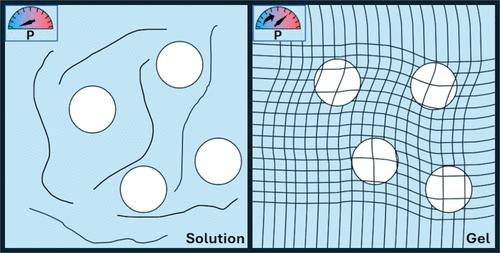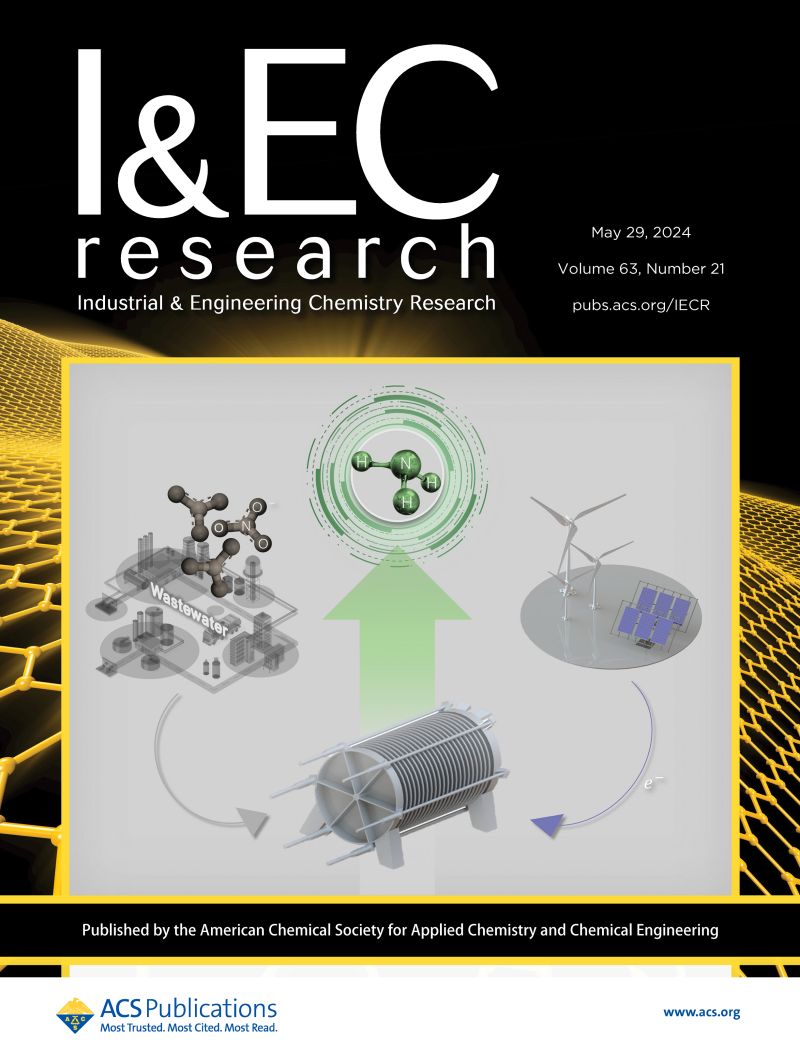热可逆蛋白溶胶-凝胶的高压流变学研究
IF 3.9
3区 工程技术
Q2 ENGINEERING, CHEMICAL
引用次数: 0
摘要
采用原位高压扩散波光谱(HP-DWS)对猪明胶凝胶进行了研究,考察了压力和温度对其溶胶-凝胶转变的流变学影响。压力诱导凝胶发生在高于环境压力凝胶转变温度的温度下,这表明高压稳定了凝胶状态。利用瞬态网络模型,弹性链密度随施加压力呈巴鲁斯式缩放。压力诱导凝胶和压缩热凝胶的压力弹性系数显著不同,表明明胶链之间存在温度依赖的疏水相互作用和压力依赖的氢键之间的竞争。HP-DWS用于绘制压力-温度凝胶过渡边界,每100 MPa移动约4°C。在较高压力下,临界凝胶状态下初始网络的分形维数较小,凝胶强度较弱。讨论了该结果对其他蛋白质基复合流体和软材料的影响。本文章由计算机程序翻译,如有差异,请以英文原文为准。

High-Pressure Rheology of a Thermoreversible Protein Sol–Gel
Porcine gelatin gels were studied by in situ high pressure diffusing wave spectroscopy (HP-DWS) to measure the rheological effects of pressure and temperature on the sol–gel transition. Pressure-induced gelation occurs at temperatures above the ambient pressure gel transition temperature, suggesting that high pressure stabilizes the gel state. Using a transient network model, the elastic chain density is shown to follow a Barus-like scaling with applied pressure. The pressure-elasticity coefficients are significantly different for pressure-induced gels and compressed thermal gels, suggesting a competition exists between temperature-dependent hydrophobic interactions and pressure-dependent hydrogen bonding between gelatin chains. HP-DWS is used to map the pressure–temperature gel transition boundary, which shifts approximately 4 °C per 100 MPa. At higher pressures, the initial network at the critical gel condition exhibits a smaller fractal dimension and weaker gel strength. The implications of the results are discussed for other protein-based complex fluids and soft materials.
求助全文
通过发布文献求助,成功后即可免费获取论文全文。
去求助
来源期刊

Industrial & Engineering Chemistry Research
工程技术-工程:化工
CiteScore
7.40
自引率
7.10%
发文量
1467
审稿时长
2.8 months
期刊介绍:
ndustrial & Engineering Chemistry, with variations in title and format, has been published since 1909 by the American Chemical Society. Industrial & Engineering Chemistry Research is a weekly publication that reports industrial and academic research in the broad fields of applied chemistry and chemical engineering with special focus on fundamentals, processes, and products.
 求助内容:
求助内容: 应助结果提醒方式:
应助结果提醒方式:


